Introduction
Are Pigeons Considered Pests: Pigeons, often regarded as symbols of peace and freedom, have long shared our urban landscapes and cityscapes. However, beneath their seemingly benign image lies a debate that has raged for years, that delves into the coexistence of humans and wildlife in urban environments. While some see pigeons as charming inhabitants of our cities, others view them as nuisances, raising concerns about hygiene, property damage, and public safety.
We will navigate the multifaceted aspects of this age-old debate to gain a comprehensive understanding of whether pigeons should be classified as pests or simply as fellow urban dwellers. The question of whether pigeons are considered pests takes us on a journey through the intersection of nature and civilization. Pigeons, descendants of rock doves, have adapted remarkably well to urban life, thriving in the nooks and crannies of our buildings and feeding off our discarded scraps.
This adaptability has made them a ubiquitous presence in cities worldwide, sparking contrasting opinions about their role in our urban ecosystems. On one hand, there are those who appreciate the gentle cooing pigeons in city squares and parks, finding solace in their serene demeanor. Pigeons have even been celebrated in literature, art, and religion as symbols of love, peace, and hope. However, on the other hand, pigeons’ sheer numbers and behaviors have led to concerns.
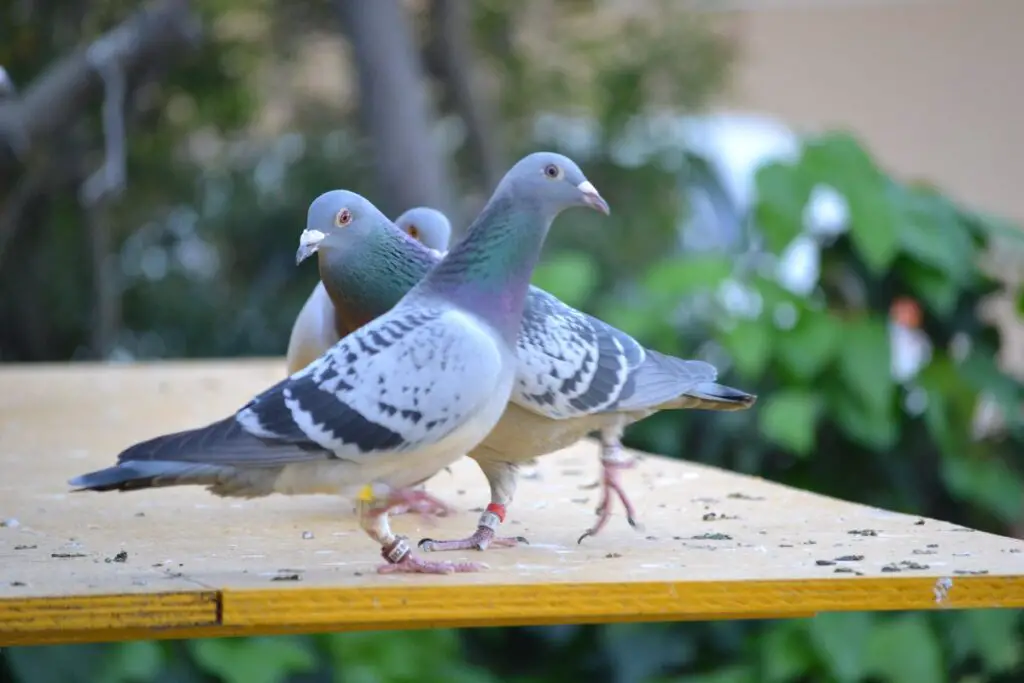
Do pigeons cause harm?
The health risk associated with pigeons is a serious problem. Pigeons carry a variety of diseases such as Ornithosis, Listeria and E-coli that can be transmitted to humans not only from pigeon droppings but also the birds themselves.
Pigeons, commonly found in urban environments worldwide, have sparked debates about whether they cause harm. While they may appear harmless at first glance, pigeons can indeed cause various forms of harm.
Their droppings can be a significant nuisance. Pigeon droppings are not only unsightly but can also corrode buildings, statues, and vehicles over time, leading to costly maintenance and repair expenses. Moreover, the accumulation of droppings on sidewalks and public spaces can create slippery and hazardous conditions, posing a threat to pedestrians.
Pigeons are known carriers of diseases, such as histoplasmosis and cryptococcosis, which can be transmitted to humans through contact with contaminated droppings or feathers. This potential health risk raises concerns, especially in densely populated urban areas.
What diseases do pigeons carry?
Diseases associated with pigeon droppings include Cryptococcosis, Histoplasmosis and Psittacosis. You can become infected with these diseases by breathing in the dust that is created when cleaning droppings. The risk of pigeon-related diseases is rare.
Histoplasmosis: Pigeon droppings can contain the fungus Histoplasma capsulatum, which, when inhaled as airborne spores, can cause histoplasmosis in humans. This respiratory illness can range from mild flu-like symptoms to severe lung infections, particularly in individuals with weakened immune systems.
Cryptococcosis: Another fungal disease, cryptococcosis, can be contracted by inhaling airborne spores from pigeon droppings. It primarily affects the lungs and can lead to symptoms such as fever, cough, and headache. In severe cases, the infection can spread to the central nervous system.
Psittacosis: Although more commonly associated with parrots, pigeons can also transmit psittacosis, a bacterial infection caused by Chlamydia psittaci. Symptoms in humans may include fever, cough, and difficulty breathing, resembling pneumonia.
Salmonella: Pigeons are known carriers of Salmonella bacteria, which can contaminate their droppings and feathers. Contact with contaminated surfaces or ingestion of contaminated food can lead to gastrointestinal illness in humans.
Are pigeons a threat?
Pigeons can host numerous ectoparasites as well; such as ticks, flies, fleas, mites and biting lice which also carry disease. Some insects that inhabit the nests of pigeons are also fabric pests and/or pantry pests. To make matters worse, pigeon droppings can also make structural surfaces slick and hazardous.
Pigeons, often seen as ubiquitous inhabitants of urban environments, are a subject of debate regarding whether they pose a threat. The perception of pigeons as threats largely depends on various factors, including the context, location, and individual perspectives.
In terms of public health, pigeons can be considered a potential threat. They are known carriers of diseases like histoplasmosis, cryptococcosis, and Salmonella, which can be transmitted to humans through contact with contaminated droppings or feathers. While the risk of contracting these diseases from pigeons is relatively low for most people, it is a legitimate concern for individuals with compromised immune systems.
Pigeons can also pose threats to property and infrastructure. Their droppings, if left unattended, can accumulate and lead to damage to buildings, statues, and vehicles. Slippery sidewalks and public spaces due to pigeon droppings can create hazards for pedestrians. The acidic nature of pigeon droppings can corrode surfaces over time, resulting in costly maintenance and repair expenses.
Are pigeons bad for your house?
The arrival of a pigeon in the house is a sign of happiness, peace, and prosperity, according to astrology. However, it is considered unlucky if the pigeon begins to build a nest in a corner of the house. It means that poverty will visit your home. You could face a financial crisis.
Damage to Building Structures: Pigeon droppings are not only unsightly but also acidic, which can corrode and damage various building materials over time. This can lead to costly repairs and maintenance, particularly on roofs, gutters, and architectural features.
Clogged Gutters and Drains: Pigeon droppings can accumulate in gutters and drainage systems, leading to blockages and water damage. This can result in water seepage into your home, causing structural damage and potential mold growth.
Nesting in Unwanted Areas: Pigeons often seek shelter in nooks and crannies of buildings, including vents, eaves, and chimneys. Their nests can obstruct airflow, ventilation, and exhaust systems, which can be a fire hazard and reduce the efficiency of heating and cooling systems.
Health Risks: Pigeon droppings can carry diseases and parasites, posing health risks to humans. Inhaling airborne spores from dried droppings can lead to respiratory issues, while contact with contaminated surfaces can spread diseases like histoplasmosis and Salmonella.
Is pigeon poop good fertilizer?
Pigeon droppings can be composted though it is best to only compost it from healthy, captive birds such as racing stock, as poop from wild birds may contain harmful diseases or pathogens. Like chicken poo, pigeon droppings can be a useful fertilizer in the garden but it needs time to cool down first.
Pigeon poop, often referred to as pigeon guano, can indeed be a valuable fertilizer when properly processed and utilized. Pigeon guano is rich in nitrogen, phosphorus, and potassium, three essential nutrients that are vital for plant growth. These nutrients make pigeon guano an effective and natural fertilizer that can enhance soil fertility and promote healthy plant development.
Considerations when using pigeon guano as a fertilizer. Fresh pigeon droppings can be extremely high in ammonia, which can burn plants and harm their roots if applied directly. To make pigeon guano safe and effective, it needs to undergo a composting or aging process to break down the ammonia and pathogens. This typically involves allowing the guano to decompose for several months to a year.
Once properly composted, pigeon guano can be a valuable addition to garden soil, providing a balanced nutrient source that can benefit a wide range of plants. It can also improve soil structure and water retention.
Is pigeon poop toxic?
The UK’s Health and Safety Executive (HSE) clarifies that two diseases psittacosis and salmonella are the main health risks for those exposed to pigeon droppings.
Pigeon poop, while not inherently toxic, can pose health risks to humans due to its potential to carry various pathogens and contaminants. The primary concern lies in the fact that pigeon droppings can harbor bacteria, fungi, and parasites that may be harmful if they come into contact with humans or are inhaled.
One of the most significant concerns associated with pigeon poop is the risk of diseases like histoplasmosis and cryptococcosis. These diseases are caused by inhaling airborne spores from dried pigeon droppings. While healthy individuals may only experience flu-like symptoms, those with weakened immune systems can face more severe health complications.
Pigeon droppings can also contain Salmonella bacteria, which can lead to gastrointestinal illnesses if ingested through contaminated food, water, or hands. The high ammonia content in fresh pigeon droppings can be irritating to the eyes, nose, and respiratory tract, potentially causing discomfort or respiratory issues.
To minimize the health risks associated with pigeon poop, it’s essential to take precautions. Avoid direct contact with droppings, wear protective gear when cleaning or removing them, and ensure proper ventilation when working in enclosed spaces where pigeon droppings may have accumulated.
Do pigeons carry fleas?
Pigeons carry parasites, including mites, fleas, ticks that are dangerous to humans and domestic animals. Pigeons may also encourage other pests, such as rats, which feed on dead pigeons and the food sometimes scattered for pigeons by well intentioned bird-lovers.
Pigeons can carry fleas, although they are not the primary hosts for these blood-feeding parasites. Fleas are ectoparasites that infest a variety of warm-blooded animals, including birds and mammals. While pigeons may not be the preferred host for fleas, these parasites can still infest pigeon populations and occasionally bite humans.
Fleas that infest pigeons are typically bird fleas, such as the “pigeon flea” Ceratophyllus columbae, which are adapted to feed on the blood of birds. However, these fleas can bite humans when their primary avian hosts are not available. While pigeon fleas are generally not as troublesome for humans as fleas associated with mammals, their bites can still cause itching and discomfort.
That the risk of contracting diseases from pigeon fleas is relatively low. However, fleas can transmit diseases in some cases, so it’s advisable to take precautions if you suspect an infestation. Maintaining good hygiene, regular cleaning, and pest control measures can help reduce the presence of fleas in areas frequented by pigeons. If you encounter persistent flea infestations associated with pigeons, it’s best to seek professional pest control services to address the issue effectively and minimize potential health risks.
Can you get rabies from pigeons?
Birds, snakes, and fish are not mammals, so they can´t get rabies and they can’t give it to you.
No, you cannot get rabies from pigeons. Pigeons, like other birds, are not known reservoirs for the rabies virus. Rabies primarily affects mammals, including dogs, bats, raccoons, and certain other wildlife. The virus is typically transmitted through the bite or saliva of an infected animal.
Rabies is a viral disease that attacks the central nervous system and can be fatal if not treated promptly. While it is crucial to exercise caution around animals that are potential rabies carriers, pigeons do not fall into this category.
Pigeons are considered birds, and avian species are not susceptible to rabies. Their biological makeup and lack of specific receptors necessary for the rabies virus to infect and replicate in their bodies make them unlikely hosts for the disease.
That rabies can be a serious and life-threatening disease, so any potential exposure to mammals that could carry rabies should be taken seriously. If you are bitten or scratched by a mammal that could carry rabies or if you encounter a potentially rabid animal, seek medical attention promptly and report the incident to local health authorities for evaluation and guidance on rabies post-exposure prophylaxis.
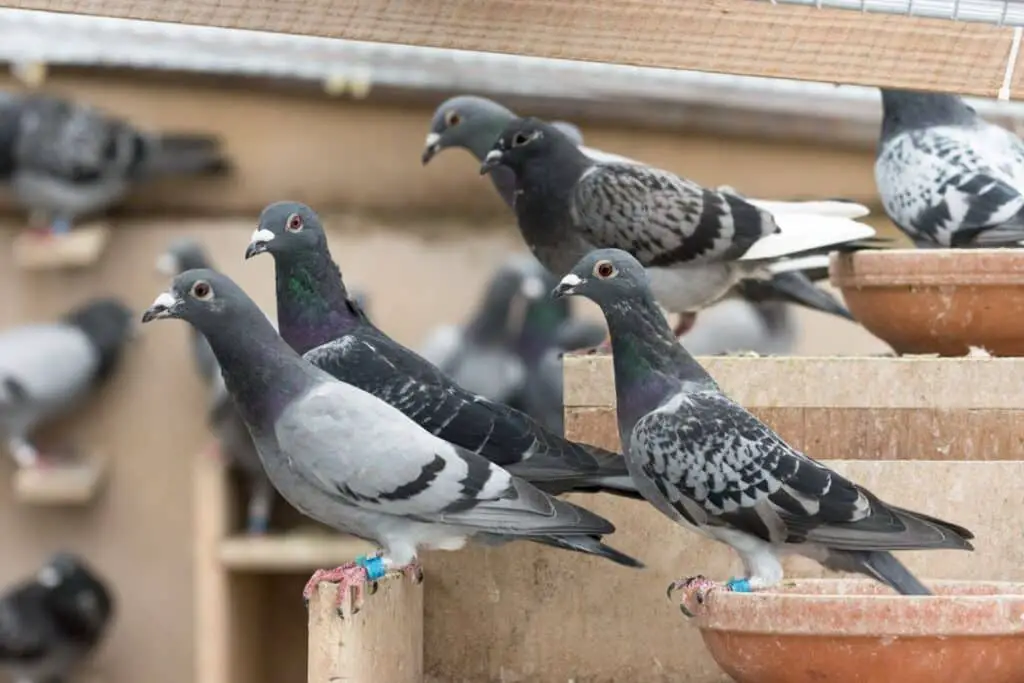
Conclusion
Whether pigeons are considered pests is far from straightforward. This debate transcends the mere classification of these birds and delves into the intricacies of our coexistence with urban wildlife. Pigeons, with their mixed reputation, have woven a complex tapestry of perspectives within our cities. While some appreciate their presence as a symbol of peace and freedom, others grapple with the practical challenges they pose.
The debate has illuminated concerns about hygiene, property damage, public safety, and the potential displacement of other bird species. The status of pigeons as pests or non-pests is a nuanced and multifaceted issue. These birds, often seen as both a symbol of peace and a source of irritation in urban environments, challenge us to strike a balance between our coexistence with wildlife and the practical concerns of city living.
While some may appreciate the charm of pigeons and their contributions to urban biodiversity, others raise valid concerns about hygiene, property damage, and public safety associated with their presence. This debate reminds us of the dynamic relationship between human civilization and the natural world, urging us to consider the ethical, environmental, and practical dimensions of our interactions with urban wildlife.

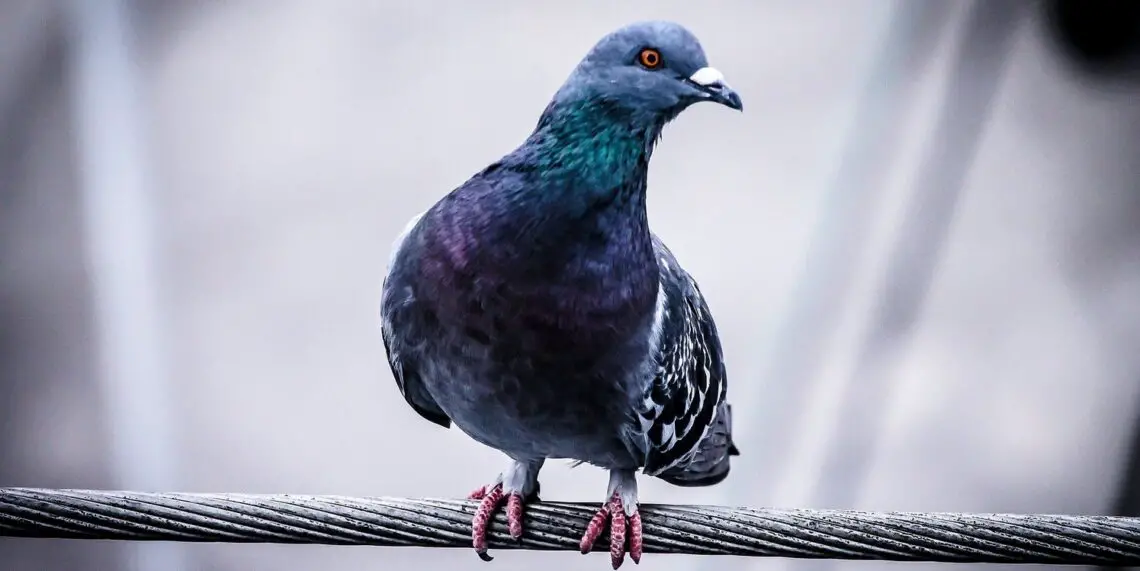

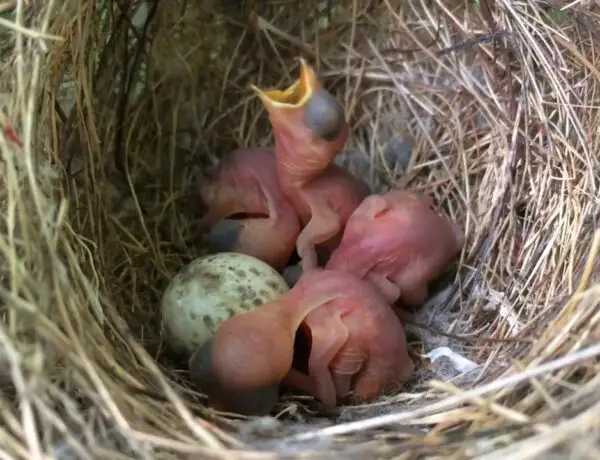
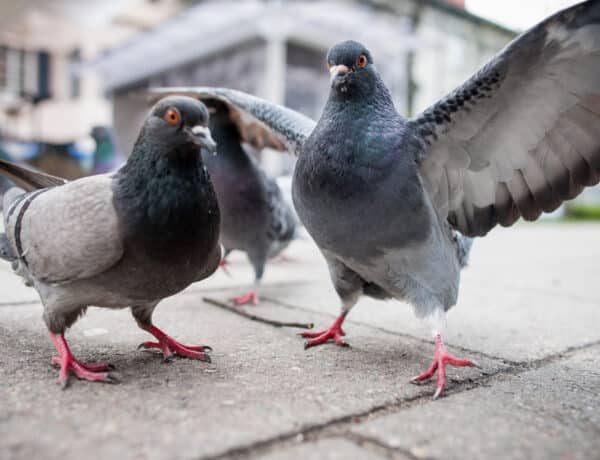
No Comments